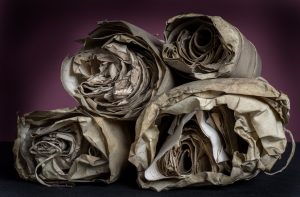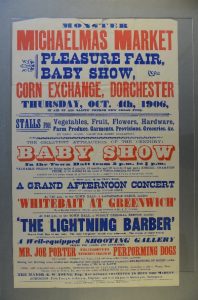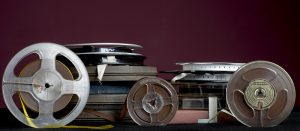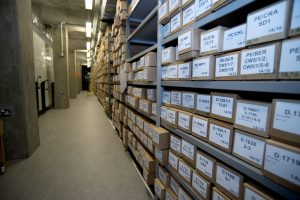During this period where many of us are in effect house-bound, we thought that it would be useful to revisit the basis on which the Dorset History Centre (DHC) was established in 1955 – i.e. to preserve and make accessible archives and to ask the question ‘what are archives?’ and ‘why should we keep them?’ . In an era when funding is increasingly difficult to acquire, it makes to sense to be able to show the value that archives provide – and what we would lose if archives were not preserved for current and future generations.

What are archives?
Archives are in essence items holding recorded information (hard copy or digital) such as letters, diaries, financial or business records, photographs, plans, maps or film and sound recordings. Archives are often assumed to be unique items – i.e. no other copy existing. However, at DHC we hold many printed items which are also classified as ‘archival’ – in large part because things that we sometimes see in great profusion at one time can become extremely rare in future times. Newspapers are a good example of this – how many people for example will possess a copy of the Dorset Echo from 1 April 1952?
Although something of a cliché, it is also true to say that one person’s rubbish is another person’s gem. This means that we need to be rigorous in terms of what we retain. DHC will only keep a tiny percentage of the total information generated in Dorset, and we try and acquire a representative sample of archives from all sectors of society and the communities that make it up – from the councils, landed estates and businesses to the charities, clubs, solo artists or tradesmen – anyone or anything with an interesting story to tell.

Why keep archives?
Archives are, most importantly, evidence – of a business transaction, an event or a creative act which cast a light on the past, something that may also influence present or future decision making. At the local or personal level this could be the record of a baptism or marriage, attendance at school or the boundary around a property. Records cast light on decisions a court or council may have made or the electoral fortunes of an earlier time. Sometimes archives can be used for reasons which are unrelated to why they were originally created. For example, the meteorological records kept by a ship’s captain are now consulted for evidence of climate change. Archives are often very useful for showing how often history can repeat itself – something we see when looking at architectural styles.

Not just paper!
Archives can be sound – e.g. oral history or film. DHC holds significant quantities of both. The more modern the format, often the more fragile it can be. Our earliest parchment records are over 1000 years old, whereas film or digital content can deteriorate relatively quickly.

What can I do?
You may well hold archives of your own. We will also be publishing a series of future blogs which examine common archival types that you may find at home whilst sorting through cupboards and drawers. We will discuss how you can best preserve them and how, if you would like to add to Dorset’s archival heritage, you could consider depositing them at DHC.
Please email archives@dorsetcouncil.gov.uk if you want any further advice about something you might have found!

